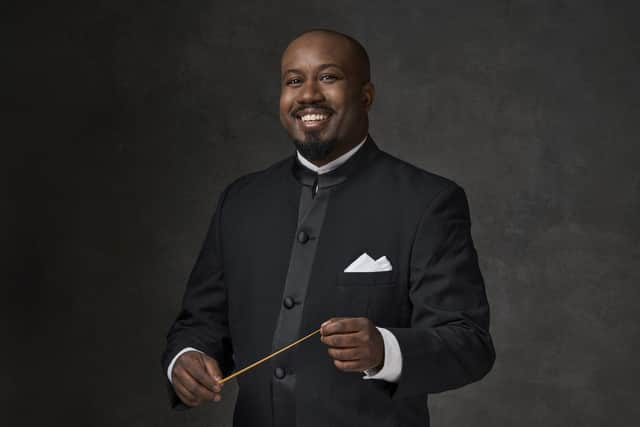Music review: RSNO & Kellen Gray, Glasgow Royal Concert Hall
RSNO: African American Voices, Glasgow Royal Concert Hall ****
Wednesday’s matinée programme was a timely moment for the RSNO to push its most recent CD release, and the cultural message it promotes, in a live context. Titled African American Voices, it featured music by three little-known composers whose music and achievements are unjustly underrated, conducted by South Carolina-born RSNO assistant conductor Kellen Gray.
Advertisement
Hide AdAdvertisement
Hide AdGray began with the summery somnolence of George Walker’s Lyric for Strings, its loose-limbed pastoralism existing somewhere between Barber and Delius. It was not particularly memorable but charming nonetheless, warmly embraced by the luxuriant RSNO strings in shapely form under Gray’s relaxed direction.


More substantial, and more spirited, were the two symphonies that followed: the “Afro-American” by William Grant Still, and “Negro Folk Symphony” by William Levi Dawson, both composers born in the 1890s and representative of a generation of early 20th century black composers who found some degree of recognition in the USA during their lifetimes, but have since been overlooked.
Large swathes of Still’s symphony draw on pure jazz and its offshoots: stomping rhythms, standard harmonies, bluesy melodies and nods to swing and gospel that flavour the easy-going momentum of its four movements, which a swinging RSNO took to like a duck to water. But it’s Still’s intuitive ear for constantly-shifting orchestral texture that mostly distinguishes this symphony, reflective of his experiences writing for film and television.
Dawson’s symphony also inspired an upbeat response, its filmic opulence combining that same popular music appeal with personalised leanings towards Dvorak and, in its most beautifully austere moments, the simple airiness of Aaron Copland. Gray’s fondness for and belief in all the music in this enlightening programme made for very pleasant, satisfying listening.